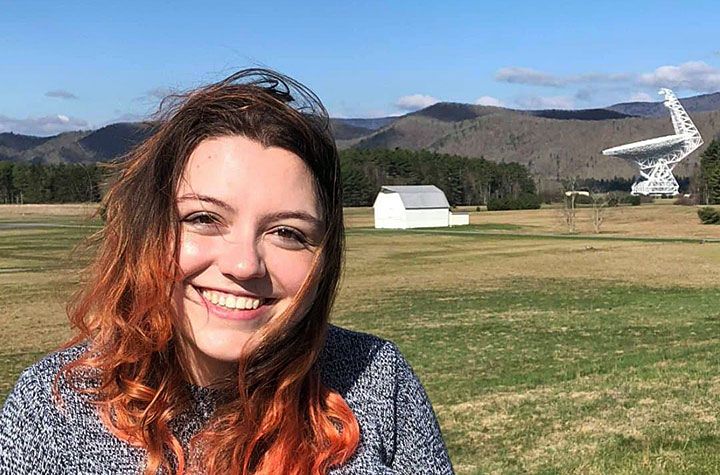With the help of the U.S. Department of Energy’s (DOE) Brookhaven National Laboratory, Juliette Stecenko is exploring cosmology—a branch of astronomy that investigates the origin and evolution of the universe, from the Big Bang to today and into the future. As an intern through DOE’s Science Undergraduate Laboratory Internships (SULI) program, administered at Brookhaven by the Office of Educational Programs (OEP), Stecenko is using modern supercomputers and quantum computing platforms to perform astronomy simulations that may help us better understand where we came from.
Stecenko works under the guidance of Michael McGuigan, a computational scientist in the quantum computing group at Brookhaven’s Computational Science Initiative. The two have been collaborating on simulating Casimir energy—a small force that two electrically neutral surfaces held a tiny distance apart will experience from quantum, atomic, or subatomic fluctuations in the vacuum of space. The vacuum energy of the universe and the Casimir pressure of this energy could be a possible explanation of the origin and evolution of the universe, as well a possible cause of its accelerated expansion.
“Casimir energy is something scientists can measure in the laboratory and is especially important for nanoscience, or in cosmology, in the very early universe when the universe was very small,” McGuigan said.

i studied quantum computing its really tough field